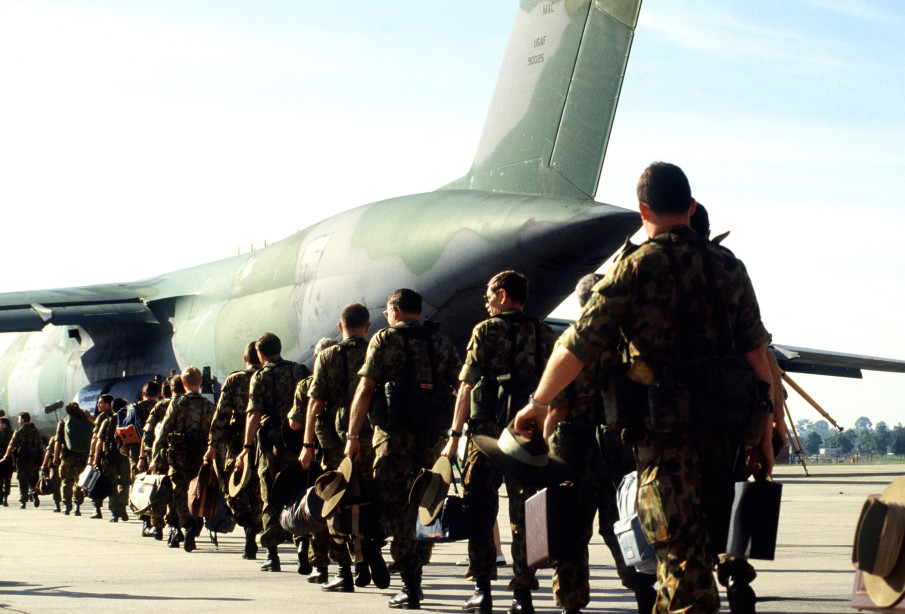(Editor’s Note: This is the second part of an analysis, written by Martin Forgues, on the current situation in the Central African Republic. You can read Part 1 here. This piece will discuss the use of a multinational Rapid Deployment Force.)
The current crisis in Central African Republic, which is now bringing the small African nation to the brink of genocide, is not only a reminder that there is no way Humanity will ever learn from history, it should also be the catalyst to revive a decades-old debate in diplomatic circles: Should there be a multinational Rapid Deployment Force (RDF) under United Nations leadership to deal with this type of quickly-started, rapidly-expanding conflict?
Of course, this is complex question, if not a new one, having been debated for decades already. One compelling case was brought to the table by foreign policy expert Peter Langille in Conflict Prevention: Options for Rapid Deployment and UN Standing Forces, published in a collective work called Warlords, Hawks and Doves: Peacekeeping as Conflict Resolution.
While essentially a good, even noble, idea, problems arise when wishful thinking comes up against reality in regards to the idea of a Rapid Deployment Force, be them military, economic, political. Let’s examine some of these and their possible workarounds, in a nutshell.
The planning of peacekeeping operations is the ultimate challenge because you never know where you have to operate; you never know what they want you to do; you don’t have the mandate in advance; you don’t have forces; you don’t have transport; and you don’t have money! We always have to start from zero. Each and every operation that we start, we start with nothing.
Major-General Frank van Kappen, Military Advisor to the Secretary-General, March 1997
From a military point of view, the main problem with such a Rapid Deployment Force, if there were any political will at all to set up such a force, would be troop generation. The United Nations doesn’t have a standing army, which is a good thing as a supranational military would be both in violation of the UN’S charter and a potential global threat to national sovereignties.
The workaround to this caveat could be to commission units from participating member nations on a rotating basis and centralize them on a “Rapid Deployment Force base,” complete with an airfield and training areas and ideally located somewhere in Europe, since crises would most likely emerge either in Africa or in the Middle East. Rotations could range from a 12 to 18-month “tour” to maximize the operational readiness – too short and troops never reach their optimal potential, too long and the strain grinds down morale.
The force’s size and structure could be based on that of a task force centered around an infantry battalion supported on the ground by armor, engineers, artillery, air and special operations assets, all of them supported in turn with the proper medical and logistical resources. Command could also rotate between contributing militaries so that political egos can be spared.
And while I do not agree at all with Langille’s suggestion that the UN should have a standing army, he makes a point when he suggests the “middle powers” – Canada, the Netherlands, Scandinavian countries – take the lead. While his paper dates from a pre-9/11 era, the experience acquired by the soldiers of those countries in the latest war in Afghanistan could serve such a force well when deployed to break off genocidal efforts, like those in the Central African Republic.
What’s unfolding there is a textbook case of asymetrical warfare between warring religious factions and a powerless national army caught in between. Militaries from those middle powers have already acquired expertise in operations that would help bring back order on a tactical level – securing villages, setting up road blocks, crowd control, escorting convoys, mine/IED clearing, village-level operations, training and mentoring local forces and so forth.
Already have an account? Sign In
Two ways to continue to read this article.
Subscribe
$1.99
every 4 weeks
- Unlimited access to all articles
- Support independent journalism
- Ad-free reading experience
Subscribe Now
Recurring Monthly. Cancel Anytime.


COMMENTS